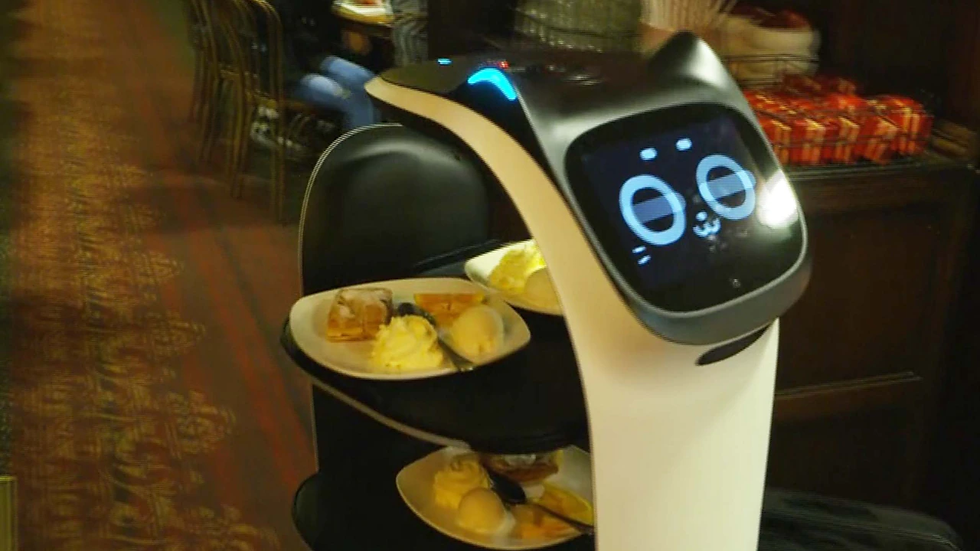Re-Commerce – Something old or something new?
- Vanessa Thompson
- Jul 27, 2022
- 4 min read

Guest Article | Vanessa Thompson - Go Well Consulting
We first met Vanessa Thompson when she set up her first consulting business Unravelled Consultants in 2019. At that time she wrote a piece for The Xfiles on how to identify your biggest sustainability risks and opportunities and how to bring your employees, stakeholders and customers on the sustainability journey with you. We are delighted that she is back in her new role at Go Well Consulting where she is Director of Supply Chain and Textiles.
Vanessa studied Fashion Management at the London College of Fashion and has spent all her professional life working in fashion. Needless to say, she knows a thing or two about how the industry traditionally operates and has worked with a number of New Zealand’s most well-known brands both large and small, particularly with improving the visibility and ethics of their supply chains.
There is a new business model, that is in fact, not that new. The art of reselling preloved or unwanted goods has been around for generations, with second-hand, vintage, or ‘op-shop’ stores going in and out of ‘fashion’ over the past few decades.
What is new, however, is who is owning these new markets. Traditionally the second-hand market has been owned by separate entities, such as charity organisations, international traders, web-based platforms, such as e-bay or Trade Me, or fashion savvy vintage curators.
With the pressure on retail businesses to take ownership for the amount of waste that is ending up in landfill, or in ending up in developing nations, they are starting to adopt circular economy principles, where the need for them to take responsibility for their products throughout their whole lifecycle is becoming ever more important.
So, what is the circular economy, and how does this affect business? According to leading pioneers at the Ellen MacArthur Foundation, the circular economy is based on three key principles:
Eliminate waste and pollution
Circulate products and materials at their highest value
Regenerative natural systems.
Our current system is built in a linear way, where natural resources are extracted, manufactured into products, used by consumers and then disposed in a landfill. Whereas a circular system keeps products in use for as long as possible. Products are mended, repaired and reused, keeping the value intact and where waste is designed out.
Part of the movement towards a circular system, is the adoption and acceleration of re-commerce. Re-commerce, or resale, is defined as the selling of preloved, or unwanted items to give a product a new home.
Businesses globally are seeing the opportunities that re-commerce will bring them, not only from a financial perspective, but also from a marketing, customer insights, customer loyalty and access to materials perspective. By creating a channel for receiving back preloved goods, businesses will learn more about the quality and usability of their products, maintain stronger, and longer, communication channels with their customers, and reduce their impact on the planet. By owning the re-commerce space, it will unlock new customer markets and additional revenue they have otherwise been losing.
However, due to decades of operating in a ‘linear’ system, the infrastructure for re-commerce is not yet fully established, and for companies where they are set up to send products out of the business, receiving these back in can require new processes, technologies and structures in order to gain the most out of the re-commerce opportunity.
Overseas, there are international organisations that are helping businesses into the re-commerce market. One of these solution providers is US based company Trove. Trove powers resale as a channel for global apparel businesses, working with companies such as Lululemon, Allbirds, and Patagonia. Trove develop white-label channels that take control of the resale marketplace, they purchase, process, price, and photograph the preloved goods before putting them up for sale on each brand’s dedicated website. Powered by the Trove platform, Patagonia’s Worn Wear website takes back items from customers, mends, cleans, and sells them to new customers, and has made an estimated $1 million USD through re-commerce since the launch of the site in 2017.
In Australia, IKEA have launched a re-commerce platform for furniture items, where customers are rewarded for returning preloved IKEA items. Through their website, customers can get an estimate value on their goods, then return them to a store for collection of an IKEA reward. IKEA then resell the used furniture through their store network. The programme has been successful, and they have now rolled the offering across Europe, Asia, Australia and most recently the US.
For businesses to pursue re-commerce opportunities it is important that they have the right infrastructure, resources and space available to ensure seamless processing of their products. Making sure data is collected and insights and quality information is filed, so that these observations can inform decision making going forward, is key. Expert communication and a streamlined process are critical to ensure positive engagement, and reengagement, by your customers with the new system.
In an era where sustainability and waste is moving to the forefront of consumers’ minds, the future health of our planet needs to be prioritised. Re-commerce allows businesses a great way to take their first steps into the circular economy. It allows companies to gain customer data, maintain and increase loyalty and develop new revenue streams. This change of mindset and business model, and taking ownership of the lifecycle of your products, will help strengthen your brand image, and give you an opportunity above other retailers in a difficult and fickle market.

Vanessa Thompson
Go Well Consulting
Director of Supply Chain and Textiles
vanessa@gowellconsulting.co.nz



Comments